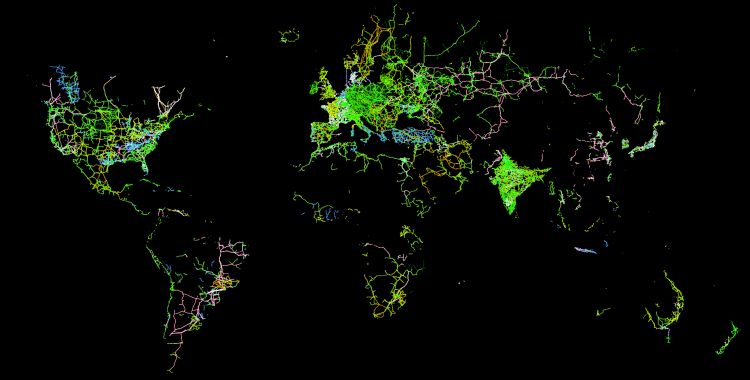Geoservice and ESRIG nominated for 2016 Dutch Data Prize

The Geoservice and ESRIG (both part of the University of Groningen) are nominaterd for the 2016 Dutch Data Prize. The dataset that the Geoservice and ESRIG will make available is very special. It is a geographically topological model of the European electricity supply. An open dataset of this kind is essential to the academic community for reserching, for example, the effect of the integration of renewable energy on stability, cost and efficiency of the electricity supply. Access to this dat makes new, data-driven academic research possible, including the development of new models and societal impact studies.
Award Ceremony
The Dutch Data Prize yearly awards the efforts of reserchers who collect and document data in order to make data accessible to others. The award ceremony will be held on Wednesday afternoon, 9 November at NWO in The Hague.
The Geoservice encourages and supports the use of spatial data, analysis and visualization techniques inside and outside the University of Groningen.
The mission of ESRIG (Energy and Sustainability Research Institute Groningen) is to contribute to the global energy supply in the coming century, for more people, and in a more sustainable way.
For more information please contact Govert Schoof (g.schoof rug.nl) of the Geoservice or Chris Davis (c.b.davies rug.nl) of ESRIG.
More news
-
29 January 2026
Microplastic research - media hype or real danger?
-
27 January 2026
ERC Proof of Concept grant for Maria Loi
